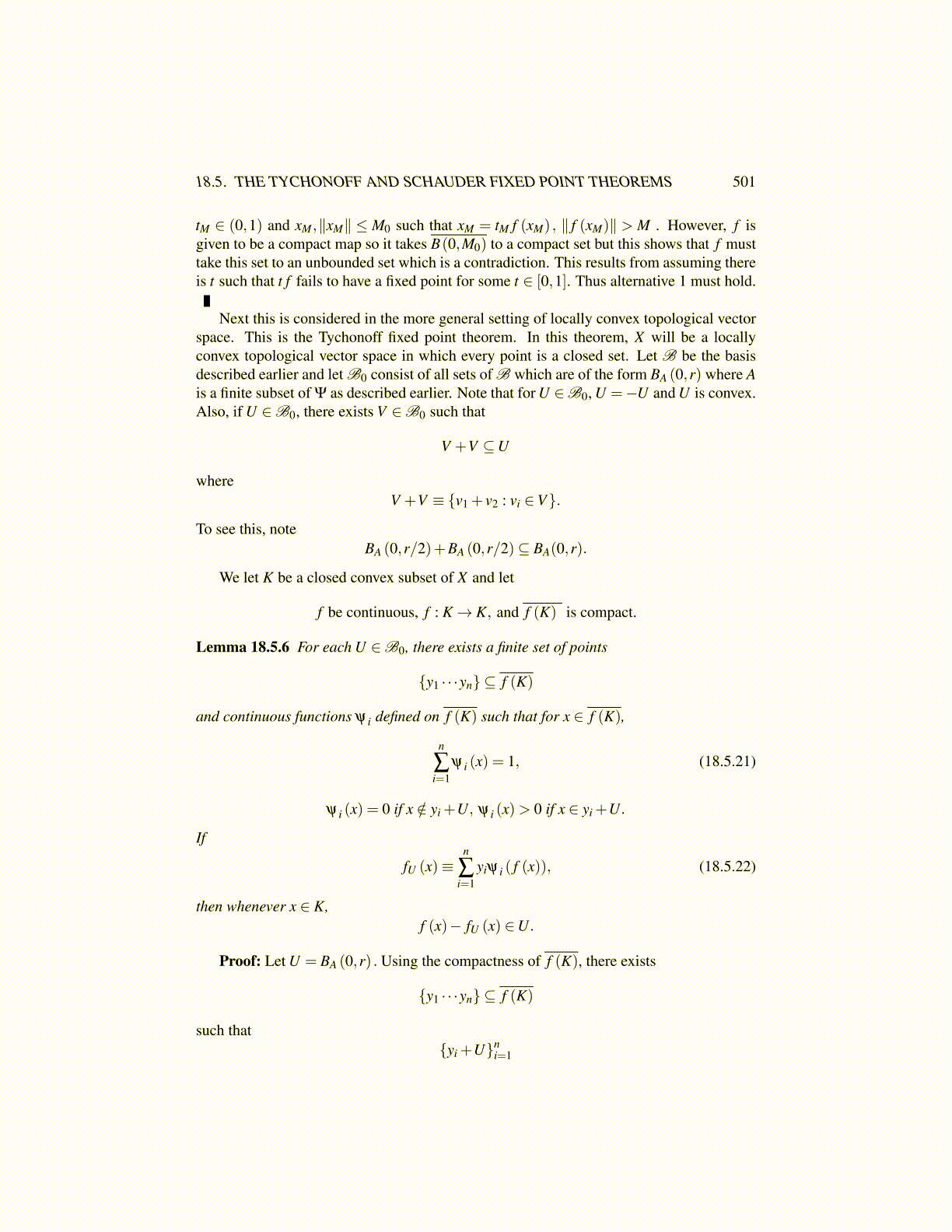
18.5. THE TYCHONOFF AND SCHAUDER FIXED POINT THEOREMS 501
tM ∈ (0,1) and xM,∥xM∥ ≤ M0 such that xM = tM f (xM) , ∥ f (xM)∥ > M . However, f isgiven to be a compact map so it takes B(0,M0) to a compact set but this shows that f musttake this set to an unbounded set which is a contradiction. This results from assuming thereis t such that t f fails to have a fixed point for some t ∈ [0,1]. Thus alternative 1 must hold.
Next this is considered in the more general setting of locally convex topological vectorspace. This is the Tychonoff fixed point theorem. In this theorem, X will be a locallyconvex topological vector space in which every point is a closed set. Let B be the basisdescribed earlier and let B0 consist of all sets of B which are of the form BA (0,r) where Ais a finite subset of Ψ as described earlier. Note that for U ∈B0, U =−U and U is convex.Also, if U ∈B0, there exists V ∈B0 such that
V +V ⊆U
whereV +V ≡ {v1 + v2 : vi ∈V}.
To see this, noteBA (0,r/2)+BA (0,r/2)⊆ BA(0,r).
We let K be a closed convex subset of X and let
f be continuous, f : K→ K, and f (K) is compact.
Lemma 18.5.6 For each U ∈B0, there exists a finite set of points
{y1 · · ·yn} ⊆ f (K)
and continuous functions ψ i defined on f (K) such that for x ∈ f (K),
n
∑i=1
ψ i (x) = 1, (18.5.21)
ψ i (x) = 0 if x /∈ yi +U, ψ i (x)> 0 if x ∈ yi +U.
If
fU (x)≡n
∑i=1
yiψ i ( f (x)), (18.5.22)
then whenever x ∈ K,f (x)− fU (x) ∈U.
Proof: Let U = BA (0,r) . Using the compactness of f (K), there exists
{y1 · · ·yn} ⊆ f (K)
such that{yi +U}n
i=1